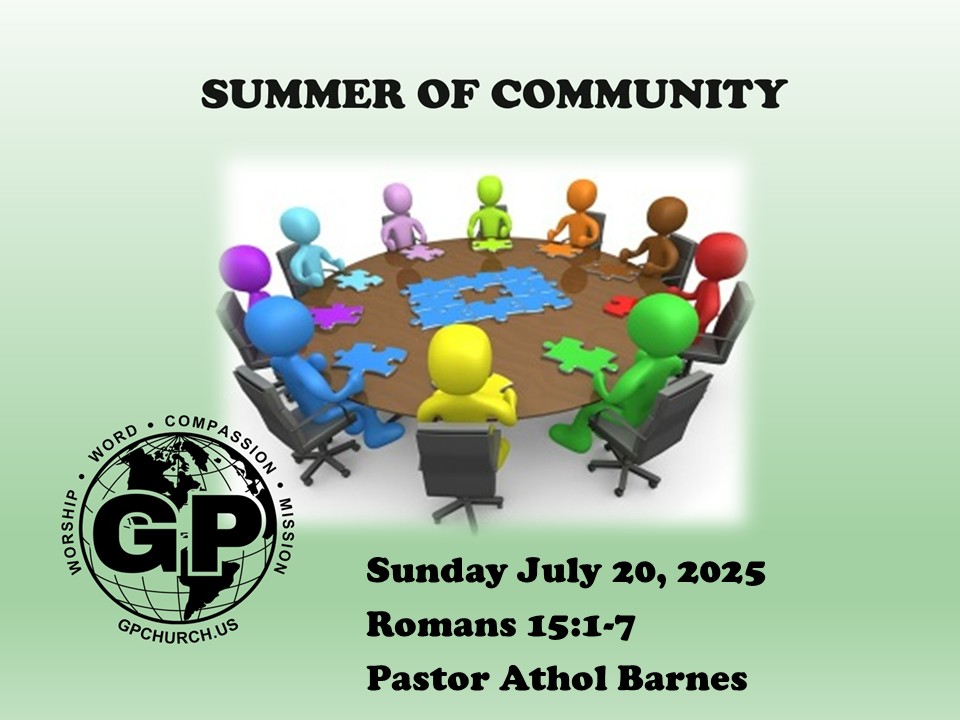
Do you know who you are?
If you have been at Grace Point at any time during the last 10 years, you will know that we value prayer. But even though we emphasize prayer, we still don’t see our prayer times well attended. I have been wrestling with this and would like to suggest that we don’t have a prayer problem, we have an identity problem. We don’t pray because we don’t believe our prayers make a difference, because we don’t know who we are in the Kingdom of God. As followers of Jesus, we have an identity problem.
A Priestly Calling
As Christians, our identity should not be in our nationality, our education, our career, nor any other criteria, our identity is to be found in being a child of God, adopted by the creator of the universe and being a member of the eternal kingdom of God. But more than that as the Apostle Peter wrote, I am part of a chosen race, a royal priesthood, a holy nation, a people for God’s own possession (see 1 peter 2:9).
If you are a follower of Jesus, someone who has committed your life to the Lordship of Jesus Christ, you are a priest, that is your identity.
Andrew Murray in his book, “With Christ in the School of Prayer” writes, “Every member of the Body of Christ – the church, has a right to the priesthood. But not everyone exercises it, many are still entirely ignorant of it. And yet it is the highest privilege if a child of God.”
What does it mean to be a priest in the kingdom of God?
As a church we believe in the priesthood of every believer, we believe that every believer is called to fulltime ministry, whatever their vocation might be (see Revelation 1:5-6).
A New Access
In the Old Testament, under the Mosaic Law, God’s people had a priesthood. There were definite qualifications for this, and it was an awesome privilege. No man in Israel could serve at the altar, or enter the tabernacle or temple holy places, except those born into the tribe of Levi and consecrated to God for service. The priest’s role was to be the mediator between God and man. And only the High priest could enter the Holy of Holies in the tabernacle. Once a year, on Yom Kippur, the Day of Atonement, the high priest was permitted to enter and sprinkle the blood of a sacrificial animal on the mercy seat of the Ark. By doing so, the high priest atoned for his own sins and those of the people.
The Holy of Holies was separated from the rest of the tabernacle/temple by the veil, a huge, heavy drape made of fine linen that was up to 6 inches thick.
When Jesus died on the cross, this veil was torn by God from top to bottom. It was a supernatural event done by the power of God to declare that man was no longer separated from God. The Old Testament temple system was made obsolete as the New Covenant was ratified. No longer would we have to depend on priests to perform sacrifices on our behalf (see Hebrews 10:19-22).
We as followers of Jesus now have a great and eternal High priest, who mediates for us, he represents us before God the Father. More than that, because of the perfect and final sacrifice that Jesus performed on the cross, we are declared righteous before God. Jesus is not only the High priest, but he is also the King of Kings, therefore we are a royal priesthood and a holy nation, because we are forever covered and made holy by the blood of Jesus.
We have been redeemed by the blood of Jesus, to be priests where we live, praying for our community and representing God to the culture. Sadly, we don’t realize who we are, we have a case of mistaken identity, and we don’t see ourselves as priests, we are happy just to take our salvation and hide from the world until we die, or Jesus comes again. Instead of influencing our culture, we hide from our culture.
But we are called to be priests who as a body of believers represent Christ to the world. When we display Christ, we display the power of the Gospel and people are drawn to it.
A Praying Church
If we want to see miracles, salvations, people set free from addictions, marriages healed and lives restored, we need to act like priests who have unhindered and unlimited access to the Great High Priest. That is what it means to pray, that is why a healthy church prays.
We cannot work our way into church health; we cannot come up with strategies and programs that will somehow create sustainable church health. The only lasting strategy is prayer. Because we desperately need the holy spirit to give us life, we are a dependent people, unity and community are not possible without the presence of the Holy Spirit in our lives and in our church.
Our worship services need to be permeated with prayer, because prayer is an expression of our dependence on God. A healthy church prays, not only on a Sunday morning, but also during the week as we gather.
How do you prepare your heart to worship on a Sunday morning?
Do you realize that as a follower of Jesus Christ, you are a priest in the kingdom, not only on a Sunday morning, but also on a Saturday night. How you spend your time during the week in private has a very real and definite effect on our gathering here together.
“We are members of a body, not only when we choose to be, but in our whole existence.
Every member serves the whole body, either to its health or to its destruction.
This is no mere theory; it is a spiritual reality.”
Dietrich Bonhoeffer.



